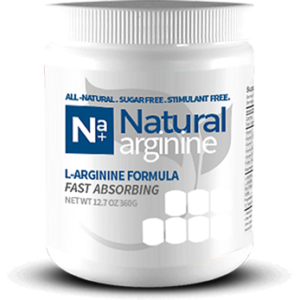Experts often stress the importance of natural choices in weight loss supplements and they are now looking into the benefits of L-arginine supplements for aiding in weight loss. L-arginine is a naturally occurring amino acid that health experts now recommend as a weight-loss treatment. L-arginine, an amino acid, is found in animal products and dairy products. It aids in muscle growth and strength improvement as well as enhanced performance.
L-arginine has been shown to have a number of health benefits, which have all been studied extensively. DNA synthesis and mitochondrial bioenergetics are both improved by L-arginine, which may explain the therapeutic effects of Arg on intestinal mucosal cells.
L-Arginine is formed by the body in sufficient amounts to raise the function of a nitric acid in the body. It also contains biochemical components that aid fat metabolism.
The main key functions of L-arginine include:
Supporting natural weight loss
Improved blood flow
Boosting immunity
Supporting the kidney functions
Increased output of growth hormone
Improving recovery post-illness
Does L-arginine help with weight loss?
In short, yes, and here is how it does:
1- L-arginine is proven to stimulate metabolism of fat, which helps in weight loss.
l-Arginine is a type of amino acid that is used to treat obesity. It’s most often given to those who are overweight to aid in the reduction of fat and the promotion of muscle growth. Accumulated fats are burned for energy and to help construct muscle tissue and develop it. L-arginine, therefore, increases your body’s metabolism as well as providing the building blocks for muscular growth. As a result – you lose fat mass but do not lose your muscle.
A research study was conducted to test the effectiveness of l-arginine in weight reduction. L-arginine supplements were given to overweight males with type 2 diabetes in order to determine whether they might help them lose weight. More than 300 participants took part in the l-arginine and placebo groups.
They ate 1000 kcal every day, exercised for 90 minutes every day for five days in a week, and took 8.3g of l-arginine each day. The results from the 21-day trial showed that l-arginine promotes weight reduction. In contrast to those on a placebo, people who received l-arginine lost 100 percent of their weight as fat, whereas those on a placebo lost up to 40 percent muscle mass.
2- Larger doses of L-arginine induce faster fat burning which is critical in developing a leaner body.
The suggested higher dosage of l-arginine intake per serving is 5 to 10 grams. You should start with a lower dose and gradually increase it as you continue to take the supplement. It promotes more fat burning and muscle formation, making it perfect for those wanting to lose weight. In the treatment of obesity, this product is quite effective. However, excessive usage can cause serious problems.
3- L-arginine helps burn belly fat.
Amino acids are believed to aid in bodybuilding. L-arginine, for example, inhibits the action of the adipose tissue, which is associated with fat accumulation around the belly. Obesity is commonly defined as a condition in which excess abdominal fat is present. The more belly fat a person has, the higher his or her chance of developing cardiovascular disease.
4- L-arginine stimulates the production of HGH.
L-Arginine also boosts HGH (Human Growth Hormone) levels, which helps to promote metabolism. L-Arginine, on the other hand, stimulates HGH production when taken in excessive doses. However, taking huge dosages of the supplement is not suggested because it might induce adverse effects such as stomach aches and diarrhea.
5- L-arginine can help increase energy levels.
L-Arginine has been used in supplement formulations for a long time. It’s been utilized for a variety of purposes, including enhancing sports performance and boosting cardiovascular health. It is a nitrogenous acid that stimulates the formation of nitric oxide, which dilates blood vessels and increases blood flow throughout the body. Increased circulation throughout the body improves overall bodily performance and increases energy levels.
Another effect or benefit of taking L-arginine is increased blood flow and how it relates to sexual function. Dilated vessels make it easier for the heart to work, lowering blood pressure and enhancing your cardiovascular health. They also enable blood to reach more pressure points faster, allowing you to exercise with greater energy. Aside from increasing energy, dilated blood vessels are also used as a treatment for erectile dysfunction.It has also been shown to promote semen production in studies, implying that it may improve sexual performance. It protects the kidneys of people with diabetes.
How you should take -arginine.
L-Arginine should be taken at least three times daily: in the morning, before and after exercise, and one more time during the day. The suggested dosage is between 2 and 6 grams. This can be used to increase blood flow, resulting in increased energy. It may be mixed with water or fruit juice and consumed immediately, using 150 ml of water or juice with 2 to 5 grams of l-arginine.
If you want to get the most out of this product, then you should take it over a prolonged time, throughout the year as opposed to in short bursts. If the user wants to reap the benefits, L-arginine should be taken continuously. It’s also worth noting that weight loss doesn’t happen right away; as a result, you must use it on a regular basis in order to see results.
It should be taken consistently throughout the year to prevent body fat and muscle loss. Although l-arginine is beneficial, it may not necessarily give the best results on its own. As a result, it’s critical to combine l-arginine supplements with workouts for optimum outcomes.
It is also important to eat a healthy, low-calorie diet. Salads, soups, vegetables, and fruits are all examples of foods that are low in calories. This is because energy-dense meals will aid in weight reduction success. Because they take up a lot of room in your stomach, they keep you full. This keeps you grounded in your weight loss goals. Various manufacturers use different quantities of l-arginine in their products, so it’s important to read the nutrient labels to determine how much to ingest.
You may begin with smaller doses and increase as your body gets acclimated to the pill, but it’s a good idea to start out gradually. To get the most from the supplement, combine it with an exercise program.





